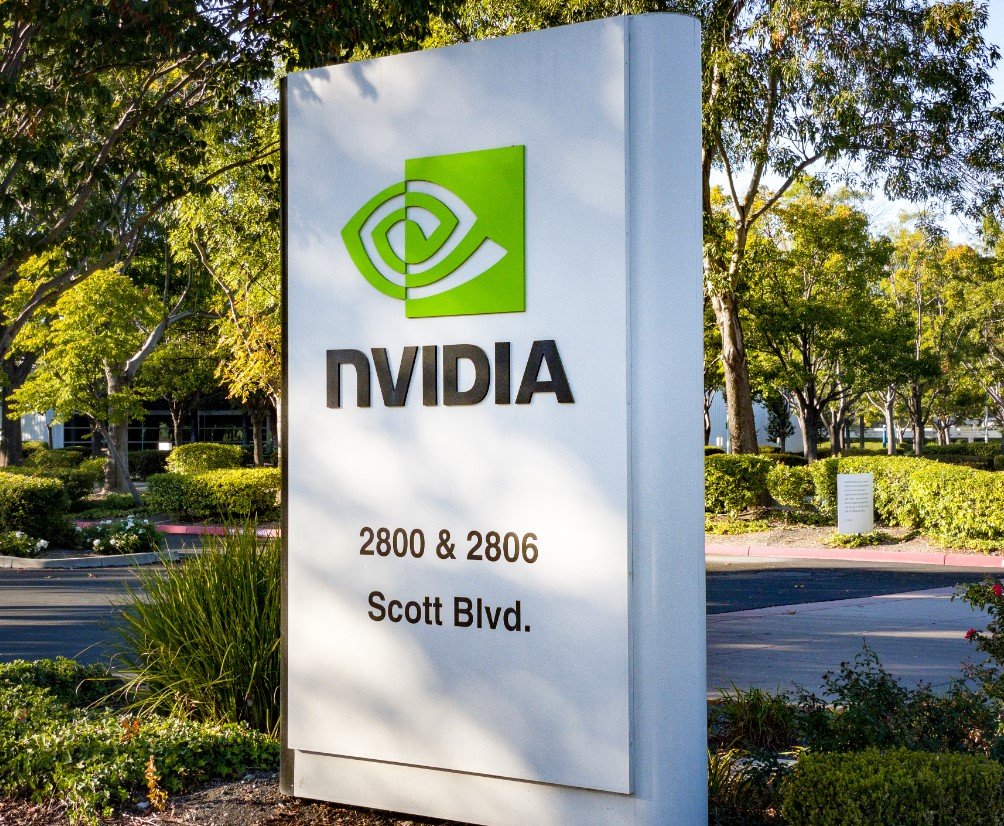Two board members of Nvidia Corp., the leading maker of chips for artificial intelligence, sold about $180 million worth of shares in the company in recent days, as the stock hit new highs amid strong demand for its products. The sales are the largest by insiders in at least six years, according to data compiled by the Washington Service.
The Insider Sales of Nvidia Shares
According to filings with the Securities and Exchange Commission, Tench Coxe and Mark Stevens, both long-time directors of Nvidia, sold or filed to sell a combined 212,000 shares of the company between March 4 and March 5. Coxe, a former managing director at venture capital firm Sutter Hill Ventures, sold 200,000 shares at prices ranging from $850.03 to $852.50, for a total of about $170 million. He still owns more than 3.7 million shares, worth about $3.2 billion. Stevens, a partner at venture capital firm S-Cubed Capital, sold 12,000 shares at prices ranging from $852.06 to $855.02, for a total of about $10 million. He still owns more than 1.6 million shares, worth about $1.4 billion.
The insider sales come as Nvidia’s stock has soared 79% this year, reaching a record high of $887 on Wednesday. The company has a market value of $2.2 trillion, making it the third-largest company in the S&P 500 Index, behind only Microsoft Corp. and Apple Inc. Nvidia’s stock has been boosted by its strong earnings, its dominant position in the AI chip market, and its pending acquisition of British chip designer Arm Ltd.

The Reasons Behind Nvidia’s Success
Nvidia is best known for its graphics processing units (GPUs), which are used to power video games, virtual reality, and cryptocurrency mining. However, the company has also become the leader in the fast-growing market for AI chips, which are used to perform complex tasks such as speech recognition, natural language processing, computer vision, and self-driving cars. Nvidia’s GPUs are widely used by cloud computing giants such as Amazon Web Services, Google Cloud, and Microsoft Azure, as well as by research institutions, startups, and governments.
Nvidia has also diversified its product portfolio by developing new chips for data centers, edge computing, automotive, and healthcare applications. The company has also invested in software and platforms, such as its CUDA programming language, its GeForce Now cloud gaming service, and its Omniverse simulation and collaboration platform. Nvidia’s revenue in the fourth quarter of 2023 rose 61% year-over-year to $5 billion, beating analysts’ expectations. The company’s data center segment, which includes its AI chips, grew 97% year-over-year to $1.9 billion, accounting for 38% of its total revenue.
Nvidia’s growth prospects have also been enhanced by its planned acquisition of Arm, which designs the chips that power most of the world’s smartphones, tablets, and other devices. The deal, valued at $40 billion, would give Nvidia access to Arm’s vast network of customers and partners, as well as its intellectual property and expertise in low-power and energy-efficient chips. Nvidia has said that it intends to use Arm’s technology to create new AI chips for edge devices, such as smart cameras, robots, and drones. The deal, however, faces regulatory hurdles in several countries, including the U.S., the U.K., China, and the E.U.
The Challenges and Opportunities for Nvidia
Despite its impressive performance and outlook, Nvidia faces several challenges and opportunities in the competitive and dynamic chip industry. Some of the factors that could affect Nvidia’s future include:
- Competition: Nvidia faces fierce competition from other chipmakers, such as Intel Corp., Advanced Micro Devices Inc., and Qualcomm Inc., as well as from new entrants, such as Amazon, Google, and Apple, which are developing their own custom AI chips. Nvidia also competes with other GPU makers, such as AMD and Taiwan Semiconductor Manufacturing Co., which supply chips to Nvidia’s rivals and customers.
- Innovation: Nvidia relies on its ability to innovate and deliver new and improved products and services to maintain its edge in the AI chip market. The company invests heavily in research and development, spending $3.1 billion, or 19% of its revenue, on R&D in 2023. Nvidia also collaborates with academic institutions, industry partners, and open-source communities to advance the state of the art in AI and computing.
- Regulation: Nvidia’s acquisition of Arm and its dominance in the AI chip market could attract regulatory scrutiny and antitrust action from various authorities around the world. Nvidia could face challenges in obtaining the necessary approvals and concessions for the deal, as well as potential lawsuits and fines from competitors and customers. Nvidia could also face ethical and social issues related to the use and impact of its AI products and services, such as privacy, security, bias, and accountability.
Nvidia is one of the most successful and influential companies in the chip industry, and a key player in the AI revolution. The company’s board members have cashed in on its record-breaking rally, but they still hold significant stakes in the company. Nvidia’s future will depend on its ability to overcome the challenges and seize the opportunities in the fast-changing and competitive AI chip market.
